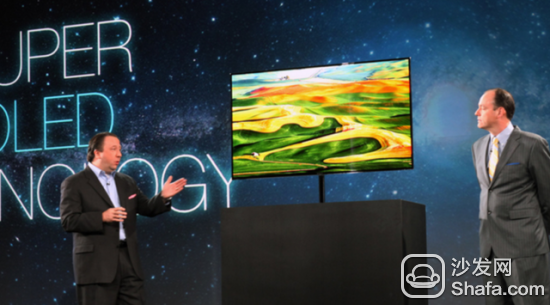OLED displays (organic light emitting diodes, hereinafter referred to as "organic screens") are not new technologies, and more than 10% of Chinese smartphones use AMOLED screens. However, Apple will use organic screens in next year's mobile phones. This news has stimulated the entire organic screen industry.
According to foreign media reports, South Korea's two major organic screen giants Samsung Electronics and LG, are preparing to launch in-depth competition, Samsung Electronics will be involved in the production of TV organic screen, and LG Electronics will erode the advantages of Samsung, increase the production of mobile phone screens.
According to reports from foreign media SamMobile, in the field of organic display panels, LG Electronics has been focusing on R&D televisions. There are already a large number of organic screen TVs on the market. Not enough because of the high prices, organic screen TVs have not yet entered the homes of ordinary people.

According to South Korea's display industry sources, Samsung Electronics is preparing to enter the field of television organic screens. Samsung plans to increase the production line of large-size organic screens in its factory in Chungcheongnam-do, South Korea, in the third quarter of this year. The production line is tentatively planned to invest nearly 2 billion to 3 billion U.S. dollars.
According to reports, in the eighth generation of organic panel production technology, Samsung Electronics is conducting final tests.
The market generally believes that organic screens will become an alternative technology to LCD screens if prices can drop. In the field of LCD TVs, Samsung Electronics is currently the world's number one player. Samsung cannot watch LG Electronics occupy a greater advantage in organic screen TVs.
At the same time, LG Electronics decided to increase the market share of mobile organic screens. Last year, LG Electronics invested nearly 1.5 billion U.S. dollars and added an organic screen production line. In addition, in the fourth quarter of last year, LG Electronics also decided to continue to add about 1 billion US dollars in investment, continue to increase organic screen production.
At present, in the global smartphone organic screen market, Samsung Electronics has a 95% share. According to recent news, Apple will use organic screens in mobile phones from next year, and Samsung Electronics has already obtained 100 million cell phone organic screen Apple contracts.
According to media reports, Samsung and LG currently have a clear advantage in organic screens. Both companies hope to compete for orders for organic screens from Apple's mobile phones, and have already submitted screen samples to Apple. LG naturally can not be reconciled to the majority of Apple orders flow to Samsung.
According to industry estimates, the global mobile organic screen market capacity this year will reach 25 billion US dollars. However, for Samsung Electronics, after firmly controlling the mobile phone screen market, the next step is to open up the TV organic screen market.
Foreign media pointed out that in order to obtain orders for organic screens for Apple's mobile phones in the future, LG Electronics must increase the production capacity of mobile screens.
In terms of organic screens, Apple has fallen behind Chinese companies. Many Android mobile phones that are sold in China use Super AMOLED screens manufactured by companies such as Samsung Electronics (belonging to one type of organic screen). More and more Chinese mobile phone makers are also preparing to adopt organic screens. According to sources, Huawei and Xiaomi, both Chinese mobile phone giants, are developing new mobile phones using organic screens.
A few years ago, organic screens have been considered as an alternative technology to LCD screens. Organic screens have better picture quality, lower power consumption, and better viewing angles. However, it is regrettable that the manufacturing costs and sales prices of organic screens could not be slowed down and they could not compete with LCD screens. At the same time, LCD technology has continuously achieved innovation and progress, and later entered the era of ultra-high-definition display, making the life of LCD technology further extended.
Since organic screens could not take off as soon as possible, a number of electronics companies in Japan began joint development to reduce the R&D burden.
However, the tremendous success of organic screens in the field of smart phones is driving the popularity of televisions, and organic screen manufacturing technology has also made progress. In the future TV market, organic screen TV will also end LG's dominance.
Previously, China's Foxconn spent USD 3.5 billion to acquire Japan Sharp Corporation. The most important purpose of this acquisition is also the joint development of organic screens by both parties to prevent Apple's organic screen orders from being taken away by Korean companies. Previously, Sharp's organic screen technology has lagged behind South Korea's two major companies due to weak corporate R&D funding.
Receptacle Wall Plate,Electrical Outlet Covers,Electrical Outlet Cover Plates,Wall Plates For Outlets
Lishui Trimone Electrical Technology Co., Ltd , https://www.3gracegfci.com